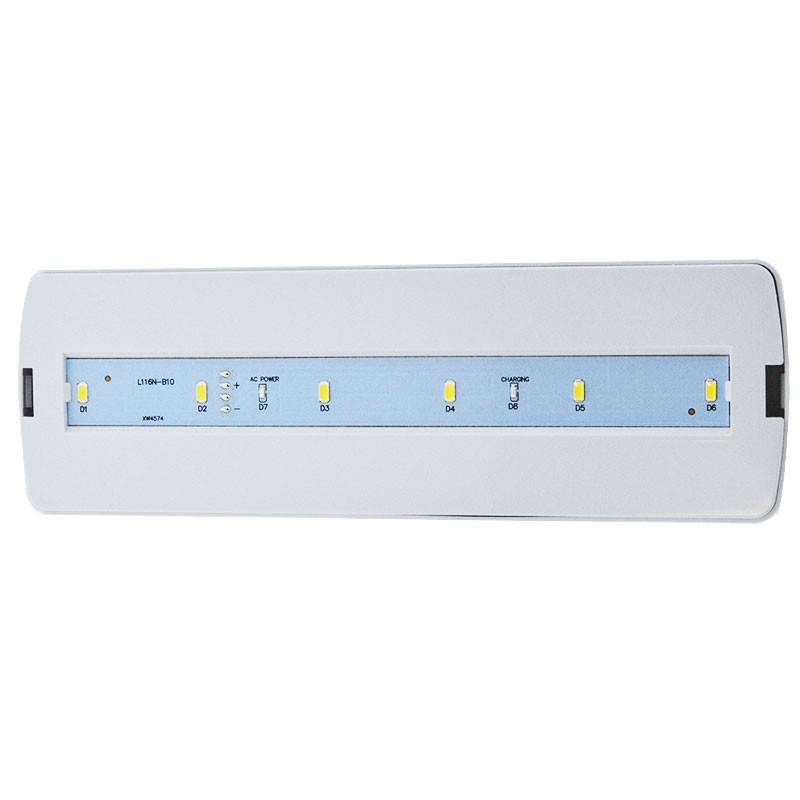SELF TEST LED emergency light - 3W - 250lm - Autonomy 3h
3W Self Test LED emergency light. Reliable lighting during power outages
This LED emergency light provides backup lighting during power outages, providing visibility in emergency situations.
It's made of ABS (acrylonitrile butadiene butadiene styrene), a shock resistant material.
It incorporates SMD5730 LED chips that ensure clear and intense lighting, even through the self-adhesive sign, with a luminous flux of 250lm and a cool white tone (6500K).
The light is not permanent, but turns on automatically in case of power failure, and has 3-hour autonomy.
An LED indicator lets you know whether the device is in operation (green color) or if the battery is charging (red color), making it easy to monitor its status.
Self-test system
Indicates the status of the emergency luminaires at all times. Periodically, the equipment performs two tests according to the UNE-EN 50172 standard:
Functional test: at least once a month it's necessary to simulate a power outage for sufficient time to ensure that all luminaires are powered through the battery.
Autonomy test: At least once a year, it's necessary to verify that the autonomy of each device is equal to or greater than the nominal one. To do this, a power supply outage will be simulated, allowing the batteries to be depleted.
Installation
This emergency light can be installed in two ways:
Recessed: replacing an old luminaire or making a new hole. Once the cutout and wiring connection is done, the luminaire is easily inserted and fixed by means of its two lateral flaps.
Surface: it requires the wiring connection on the wall or ceiling. The frame that carries the luminaire for recessed installation must be removed prior to surface installation.
It includes all the necessary elements for mounting.
Precautions during installation:
1) Disconnect power during installation.
2) This product should not be installed in outdoor, humid, corrosive gas, etc. places.
3) This product should be used on a separate power circuit. It should not share circuit with lighting or other electrical equipment (with switch), to ensure that the battery can be recharged normally.
4) To ensure that the product is working normally, it should be checked periodically.
5) The device should be charged for approximately 20 hours before the first use.
6) If the device is stored or not used for a long time, it should be charged and discharged once every three months to protect the battery performance.
Applications
- Stores, businesses and offices.
- Schools and universities.
- Health facilities.
- Entertainment centers.
- Industrial facilities.
- Public places.
- Sports facilities.
|
Product features:
|
ROHS

Questions
| P: Question: | Good morning. I can't find the wiring diagram and I only find usefulness to two of the four terminals of the Autotest IP20 luminaire, I would appreciate if you could tell me what the four terminals are for. Thank you very much. |
|---|
| R: Answer: | L: Line N:Neutral E:Ground LS: (Line Switch) The line is connected by means of a switch between L and LS to turn on the emergency. |
|---|
| P: Question: | How much does shipping to Portugal cost? |
|---|
| R: Answer: | You can see the shipping conditions at the end of the web site (delivery conditions and shipping). |
|---|
| P: Question: |
Hello I don't see the CE mark, I don't see if they are approved. |
|---|
| R: Answer: | The emergency luminaire is CE marked both on the housing and on the back of the luminaire. |
|---|



























